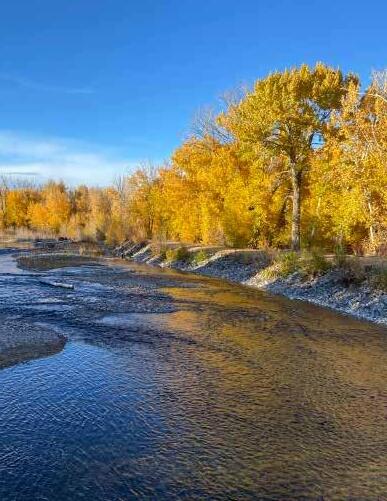A Sun Valley Insider’s Guide to Fall Colors
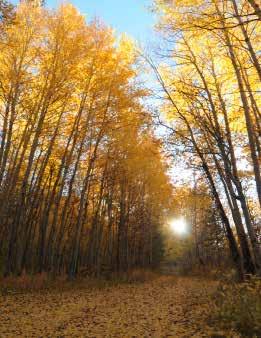




The leaves of deciduous trees have four pigments in them from the time they “bloom” in the spring: Chlorophyll (green), Xanthophull (yellow), Carotenoid (orange) and Anthocyanin (red). Chlorophyll is the dominant one all spring and summer because that is the pigment that allows a tree to create energy from sunlight through photosynthesis.
The cooling temperatures and shortening days tells the tree that the weather is about to get hostile, and the tree then sends messages to its leaves that they need to wrap up their work of photosynthesis. First, the cholorphyll subsides, and the other three pigments, which have been masked by the dominant chlorophyll all spring and summer, take over.
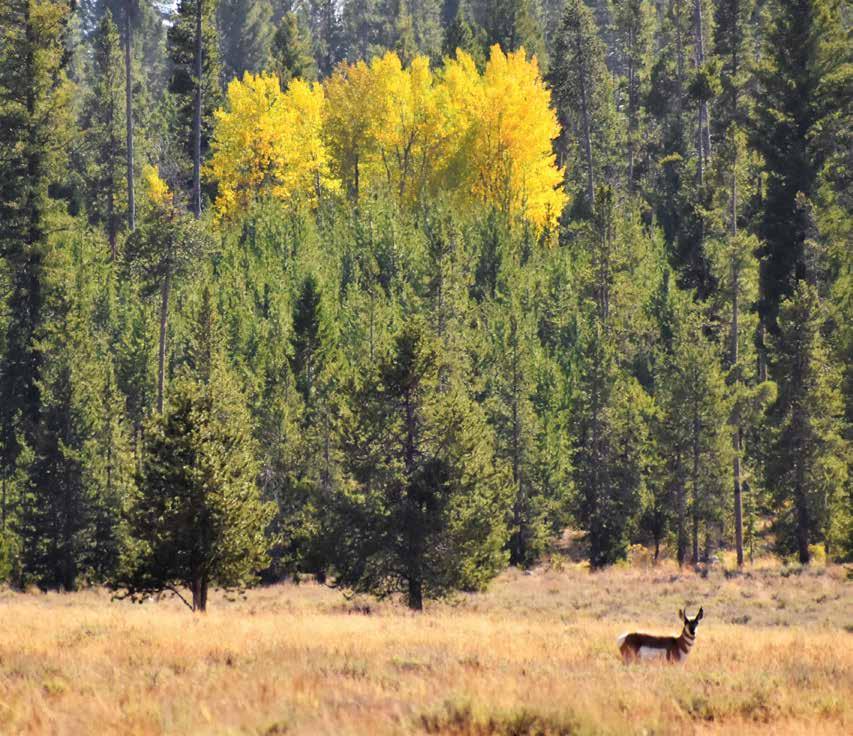

After a few weeks of the yellows, oranges, and reds, the trees let go of their leaves entirely, in order to decrease the damage that winter can do to the tree. The leaves falling is called "abscission," truly one of the more beautiful words in the language.
Other factors, such as drought, early, late or intense frosts, and smoke can affect how quickly or brilliantly a tree’s leaves change color and fall to the earth. And, like people, every tree is by degrees different, which is why two aspens standing next to each other, experiencing the very same elements, will be different colors.
Since there are more trees the farther north you go in the Wood River Valley, it stands to reason that there are more chances for viewing fall color north of town and toward Galena Summit. Just make sure to stock up on your picnic supplies in town, since there aren’t any stores or gas stations until Smiley Creek, well beyond the pass.
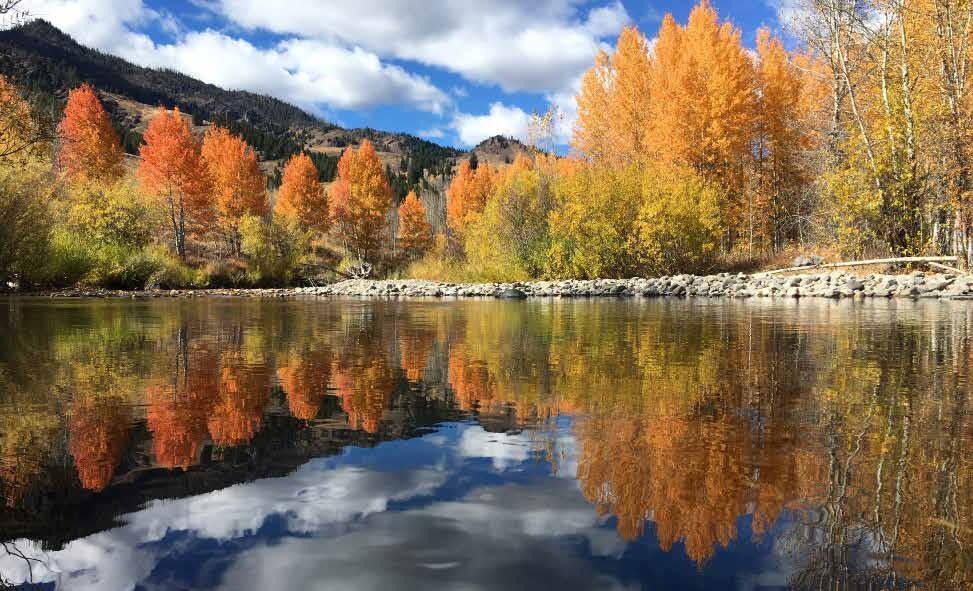
Just a couple miles north of town, this trailhead offers endless possibilities. Ramble along the river, or link up to other trails. Great fishing spots abound in this area.
As you head north, the big, colorful mountains on the right side of Highway 75 are the Boulders. Several roads head into these mountains, including Boulder City Road (MM 141) and Silver Creek (MM 146).
The large parking area on the right side of the highway, across from the Baker Creek Road, is a great place to stop and wander. Or drive up Baker Creek road to access the Norton Lakes Trailhead or Baker Lake Trailhead. Both hikes are “easy” and offer tons of scenic moments.

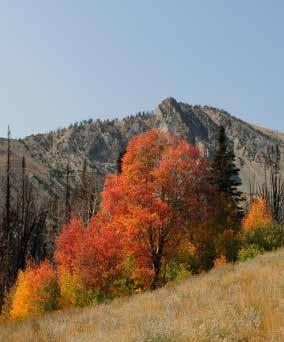
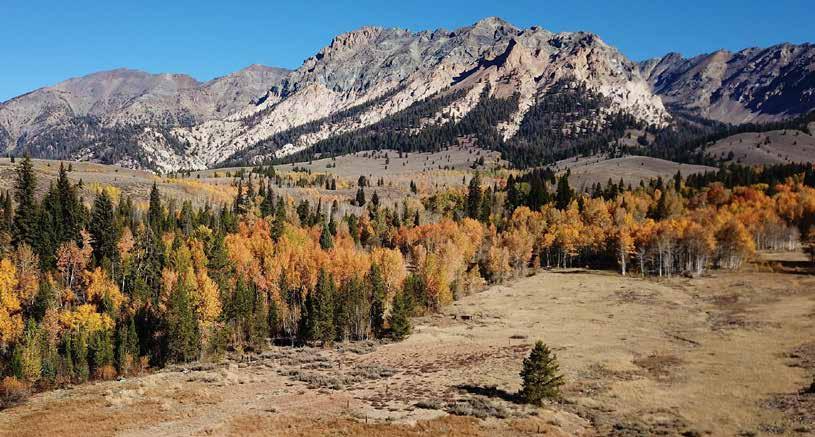


Hemingway Memorial

There are plenty of places to enjoy the colors within walking distance of Town Square. Head to Loken Park, the Ketchum Foot Bridge, or walk along the bike path to the base of the ski area.
Driving out past the Sun Valley Lodge and Resort offers endless possibilities. Walk along Trail Creek; drive up Corral Creek Road all the way to the Pioneer Cabin Trailhead; drive up and over Trail Creek Summit for a true wilderness experience (make sure the road isn’t closed); or just walk around the resort and admire how all the pieces fit together!
Fill up with gas, make a picnic, and head out Warm Springs Road. You can go a few miles, or make a day of it and go up to Dollarhide Summit. Frenchman’s Hot Springs is about 10 miles out, a nice turn- around place and certainly worth the drive.

The “Resort Core,” made up of Ketchum, Sun Valley, Warm Springs, and Elkhorn, has more places to see trees and color than you would expect. The beauty of the Wood River Valley is that there are spur roads heading east and west every few miles, and there isn’t much out there except beautiful vistas!

One of the first chairlifts ever on Ruud Mountain in Sun Valley
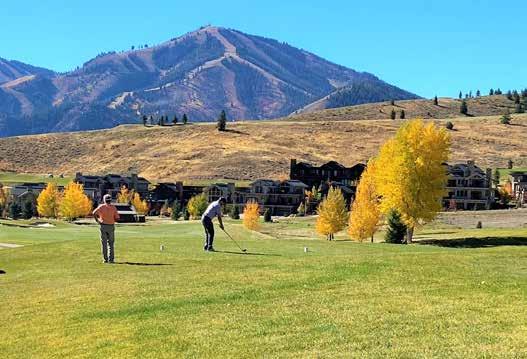
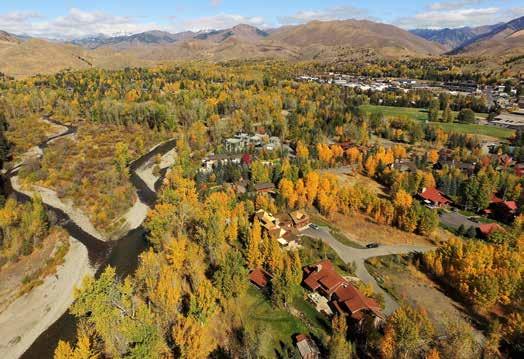

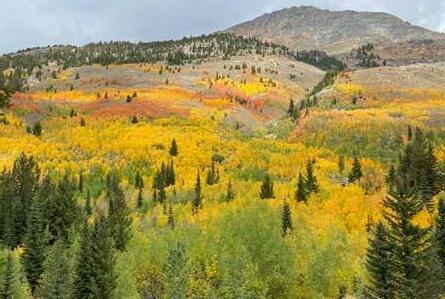
The Pioneers from Hyndman Trail
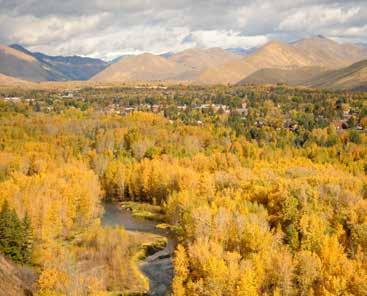

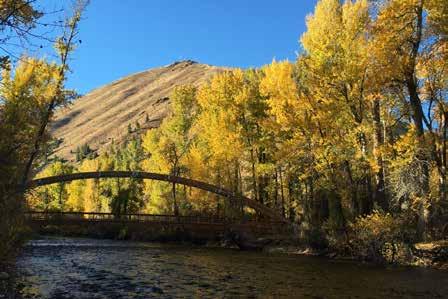
Turn east at the Greenhorn/East Fork stoplight, past the mining town of Triumph. When the road turns to gravel, either continue going straight or take Hyndman Road. Either way, there are miles and miles of hiking trails. The higher you get, the better the views!
The Bow Bridge in the Draper Preserve in Hailey is one of the best sites in the whole valley. For foot traffic only, it is shaped like a bow (and there is a giant arrow on the east side of the bridge). There are miles of riverfront trails to meander, offering varying levels of color and great river access.
The aspens and cottonwoods along the Big Wood River ensure that there will always be awesome colors south of the Resort Core. Of course, the many spur roads heading east and west fromm the highway are worth exploring too, on foot, horseback, bike, or in a high-clearance vehicle.
Park at the first bridge crossing the Big Wood River, then walk along the river or cross the street, go through the gate (it’s public), and traipse through the trees and up Star Gulch. As the gulch road climbs, pass an old mine, and in about 1.5 miles crest and look into Colorado Gulch, which has huge stands of colorful aspens.
There are fewer trees in the South Valley, but that makes the color all the more dramatic. There are several roads worth exploring in the Bellevue area: Townsend and Lee’s Gulches, Slaughterhouse Canyon, and Muldoon Canyon. And don’t forget the Hoard Preserve along the Big Wood River! Beyond that, Silver Creek has a whole different palette of colors (and the smartest fish in the country).
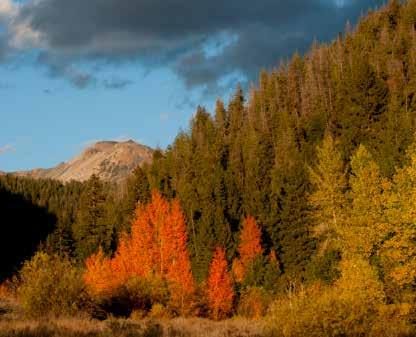


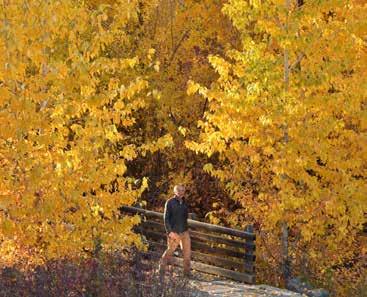


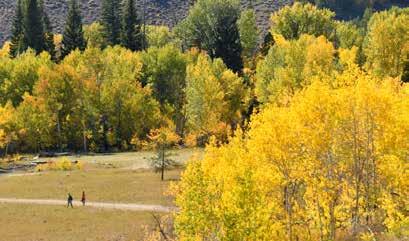

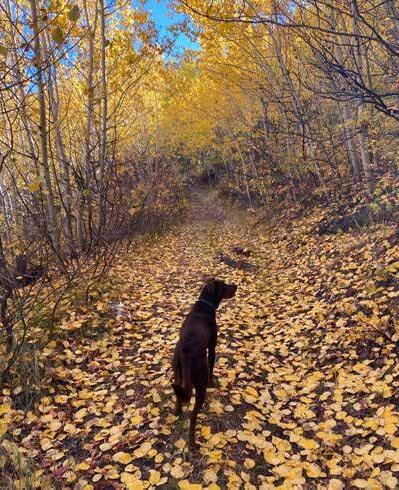

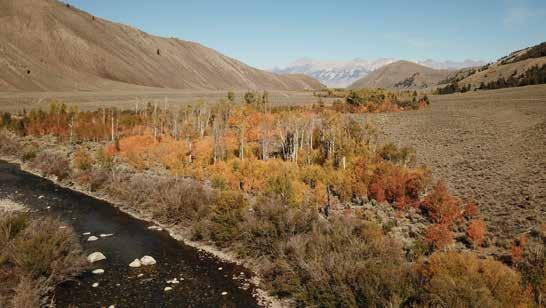
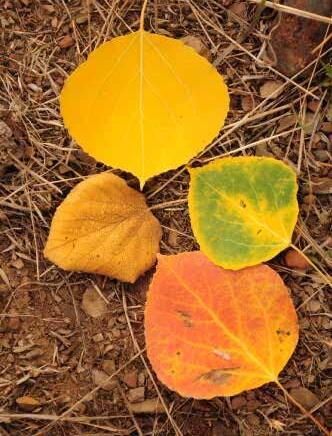
Chlorophyll (green)
Xanthophull (yellow)
Carotenoid (orange)
Anthocyanin (red)
